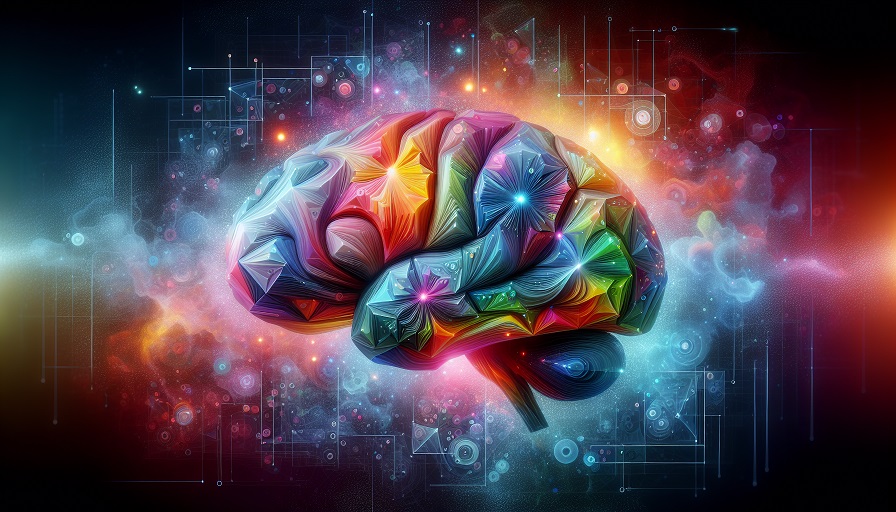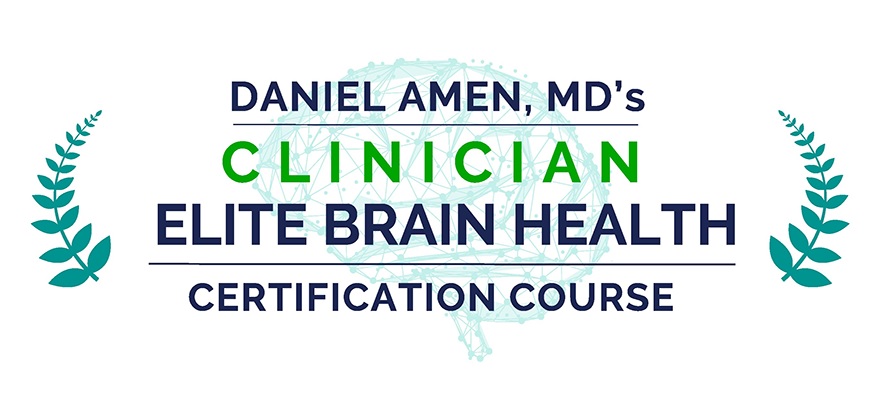
Think for a moment about the people you try to help. Maybe it is your kids, your partner, aging parents, students, clients, or friends who always seem to be struggling. You listen, you give advice, you encourage, you remind, and sometimes you nag. Some days it works. Other days it is like shouting across a canyon.
Underneath all of those conversations sits one quiet truth. Every person you are trying to help is using the same organ to listen, decide, change habits, and manage emotions, the brain. When that organ is tired, stressed, injured, or undernourished, it struggles. When it is supported, it can surprise you with what it is capable of.
That is why basic brain health knowledge has become a kind of real life superpower. You do not need a medical degree to benefit from it. With some simple, accurate understanding of how the brain works and what it needs, you can change the way you help others and the way you treat yourself.
Contents
The Brain Sits At The Center Of Everyday Struggles
When people say they feel stuck, they rarely talk about their brain directly. They say things like, “I cannot focus,” “I feel numb,” “I am so reactive,” or “I keep forgetting everything.” Those complaints sound emotional or behavioral on the surface, but they are also descriptions of brain function.
Behavior Is Often A Brain Story
Take a teenager who procrastinates, snaps at everyone, and stays up until two in the morning. From the outside, it is tempting to see laziness or an attitude problem. A brain aware perspective asks gentler questions. How much sleep is this brain getting? How overstimulated is it from screens? Has this person had a head injury or chronic stress that is changing their ability to plan and regulate?
The same is true for an overwhelmed caregiver who suddenly becomes forgetful and irritable, or for a friend who starts cancelling plans and losing interest in everything. These patterns are not proof of bad character. They are often signs that the brain needs care.
Why Willpower Alone Often Fails
Many people try to solve brain related problems with sheer willpower. They tell themselves or others to “just try harder,” “calm down,” or “be more positive.” When the brain is exhausted or out of balance, those instructions can feel impossible.
Understanding how the brain really changes, through repetition, environment, nutrition, sleep, and emotional safety, helps you stop fighting reality. Instead of demanding effort from a brain that cannot give it yet, you can learn how to make effort easier.
How Brain Health Knowledge Changes The Way You Help
You do not need to memorize every brain region or chemical. A handful of core ideas can completely reshape how you support the people around you.
You Stop Taking Everything So Personally
When you understand that certain behaviors are often tied to overloaded or under supported brain systems, you are less likely to see them as personal attacks. That does not mean you accept hurtful behavior, but it does mean you can respond with more clarity and less shame.
For example, instead of thinking, “My child is trying to push my buttons,” you might think, “Their brain is flooded and cannot problem solve right now.” That shift makes it easier to stay calm and choose what to do next.
You Ask Different, More Helpful Questions
A brain informed helper starts asking questions like:
- How much sleep is this person really getting?
- Are they constantly in a noisy, chaotic environment?
- Have they been through things that keep their brain on high alert?
- Are they moving their body at all, or sitting all day?
- Are they eating anything that actually feeds the brain?
These questions open doors that pure motivational speeches never will. They help you find small, practical changes that support the brain instead of blaming the person.
You Explain Things In Ways People Can Actually Use
Once you understand basic brain concepts, you can translate them into simple explanations for others. You might say, “When you are this tired, the decision making part of your brain works like a phone on low battery. Let us figure out how to recharge it,” or “Your brain has learned that certain situations are dangerous, even if you are safe now. We can help it learn something new.”
These short, brain based explanations help people feel less confused and more hopeful. They stop thinking, “I am broken,” and start thinking, “My brain is struggling, but there are things I can try.”
Who Can Benefit From Brain Health Knowledge?
This kind of understanding is helpful for almost anyone who deals with humans, which is practically everyone. Still, some roles benefit in especially clear ways.
Parents And Caregivers
Parenting feels very different when you remember that a child’s brain is still under construction. Knowing that emotional regulation, impulse control, and planning live in brain areas that develop over many years can bring a lot of relief.
Brain savvy caregivers tend to combine clear boundaries with lots of guidance and repetition. They focus on building skills in the brain rather than labeling a child as good or bad.
Teachers, Coaches, And Mentors
If you are shaping minds, literally, brain health knowledge is gold. It helps you understand why some students concentrate best in short bursts, why stress shuts down learning, and why movement breaks matter more than most people think.
Even small changes, like building in more repetition, offering quieter spaces, or explaining how practice strengthens brain connections, can make your support far more effective.
Helpers In Healing Professions
Therapists, counselors, physicians, nurses, and wellness coaches can deepen their impact by grounding their work in brain health. When you connect your tools, whether talk therapy, medication, breathing exercises, or nutrition advice, to specific brain benefits, clients are more likely to stay engaged.
Some professionals eventually decide to take formal brain health training or certification to become true specialists in this area. Others simply weave brain based concepts into their existing roles. Both paths can be powerful.
How Brain Health Knowledge Also Protects You
There is another side to this superpower. When you learn about brain health to help others, you also learn about your own brain. That can be life changing.
Recognizing Your Own Warning Signs
Many helpers, both professional and informal, ignore their own needs until something breaks. Understanding your brain helps you notice earlier signs of overload, like constant forgetfulness, emotional numbness, or snapping at small things.
Instead of waiting until you hit a wall, you can say, “My brain is asking for a reset. I need more sleep, better fuel, and a bit of calm.” That kind of self observation is not selfish. It is what allows you to keep helping others without burning out.
Stopping The “Push Through At All Costs” Pattern
When you know how chronic stress affects brain structure and function, it becomes harder to romanticize constant overwork. You see how living in nonstop fight or flight mode drains attention, memory, and health.
Brain awareness encourages a calmer kind of courage. You can still work hard and care deeply, but you also respect the limits of your own nervous system. That respect is essential if you want to be there for others over the long term.
Simple Ways To Start Building Your Brain Health Superpower
You do not have to become an overnight expert. Brain health knowledge is a skill you can build gradually, layer by layer.
Step 1: Learn A Few Core Principles
Start by focusing on big, practical ideas rather than endless details. For example:
- The brain is changeable throughout life, thanks to neuroplasticity.
- Sleep, movement, nutrition, and stress strongly shape brain function.
- Brains under threat behave differently from brains that feel safe.
- Repetition and practice build brain pathways, even in adulthood.
Keep these in mind as you look at your own life and the lives of those you help.
Step 2: Practice Talking About The Brain In Simple Terms
Try explaining one brain idea to someone in a single sentence. For example, “Your brain stores habits so they become automatic, like well-worn paths in the woods.” The more you practice, the easier it becomes to use brain language without sounding technical.
Step 3: Notice Brain Clues In Everyday Situations
The next time someone is irritable, distracted, or shut down, pause and ask yourself, “What might their brain be dealing with right now?” You are not diagnosing them. You are simply training yourself to see beyond the surface.
Over time, you will notice patterns. Certain situations, environments, or habits tend to strain brains. Others tend to support them. That awareness helps you offer more useful support.
Step 4: Consider Deeper Learning If You Feel Called
If helping others is part of your profession or your long term calling, you may eventually choose more structured brain health education. That could be a comprehensive course, an intensive training, or even a formal brain health clinician certification if you are already a licensed provider.
Advanced learning like that can turn your growing superpower into a true specialty, giving you a clear framework, confidence, and tools you can use for the rest of your helping life.
At the heart of all this talk about brain health is something very human. When you understand how fragile and resilient the brain can be, it becomes easier to treat yourself and others with kindness. You see that behind every sharp word, forgotten appointment, or stalled goal is an organ doing its best under the conditions it has.
Brain health knowledge is not about becoming superhuman. It is about becoming more skillfully human, especially when you are trying to help. Whether you are parenting, caregiving, teaching, or working in healthcare, learning how the brain works gives you a better map. With that map, you can walk alongside the people you care about with more wisdom, patience, and hope.

